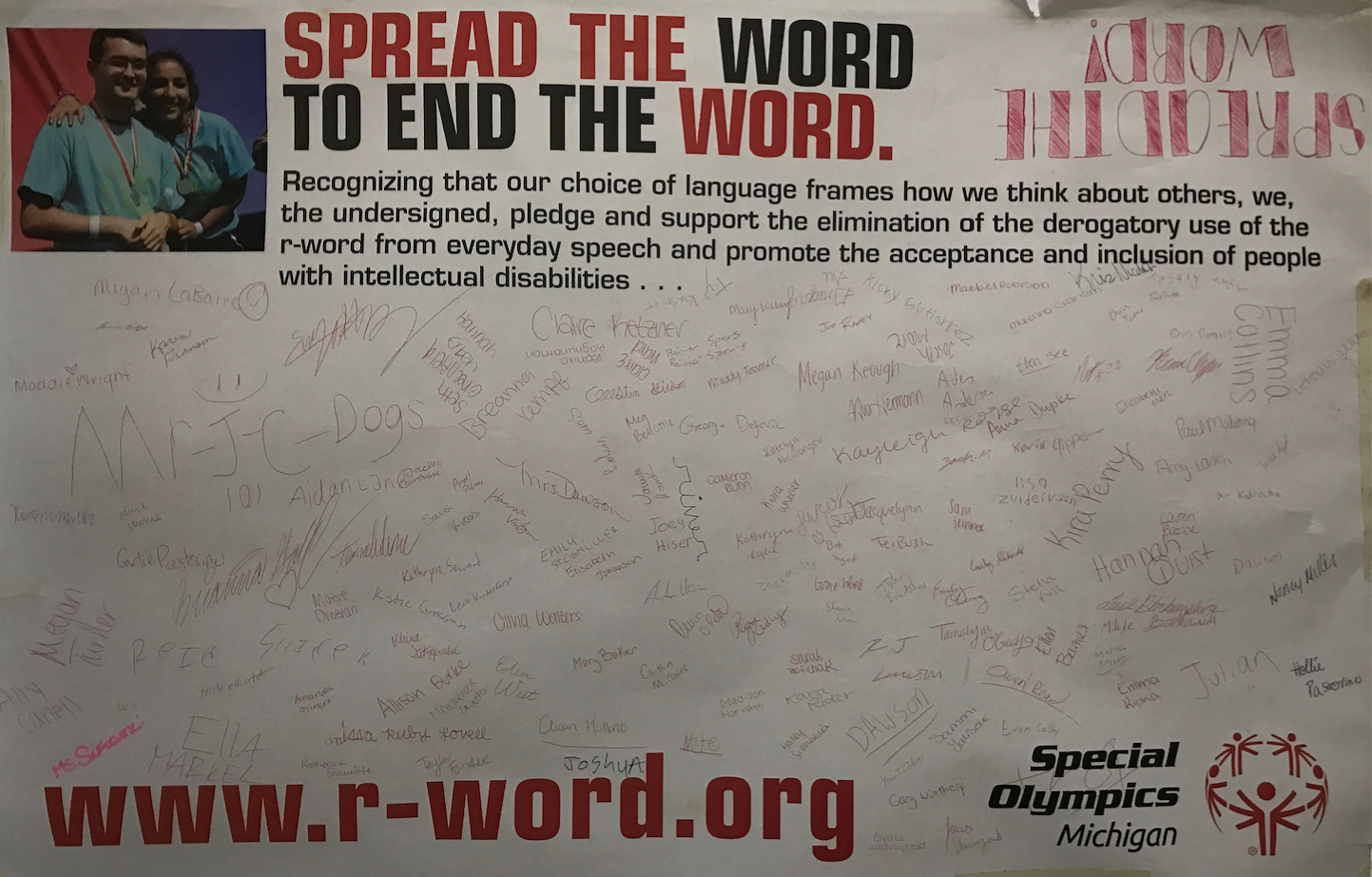The Dexter community makes an effort to eliminate a harmful word through the Spread the Word to End the Word campaign
By Joe Ramey
“I used to use it – the word retard. It was just normal,” explains a Dexter High School student. “It was just a social saying. Older kids said it, so I had some influences.”
When this student used the term retard, he was not only using someone’s disability as a comparative adjective to something else, he was desensitizing the word, allowing for it to become popularized and a working facet of people’s vocabulary.
The hurtful term has become synonymous with today’s slang, a formality for anything stupid or weird.
“At the time I didn’t think I was hurting anyone,” he said.
For a progressive and generally conscious school system, one would think such a word would be obsolete and looked at as barbaric and crude; however, it is not. The slur is still thrown around like it’s nothing.
The now-hurtful slur has become a target for advocates in an effort to end its use altogether. The “spread the word to end the word” campaign has been in service for eight years, garnering more than 700,000 pledges to refrain from using the word and to speak up about its harmful repercussions.
Though it is still heard within Dexter, schools efforts and participation in the campaign has proven prosperous.
“I think it’s fantastic,” said special education teacher and SNAP club advisor Megan LaBarre. “It’s a big campaign. Very wide spread. It’s great.”
These strides have noticeably progressed a word from a hurtful slur to a shunned put down.
“We actually had a student walk up to us and ask what the ‘R-word’ was when we initially started,” LaBarre said.
Like all high schools, Dexter has a population of students who partake in special education programs, and yet the term is still heard, ringing throughout the halls and within conversations.
“I find it offensive,” LaBarre said. “There are a ton of other words that can be used rather than that word. I think it’s a lazy term.”
When someone uses the term, they are comparing the target to a disability another person has no control over, neglecting the fact a disabled person is different and not necessarily as cognizant as others.
The use of the word is inaccurate, as well as wrong socially. The word’s original use has been outdated for several decades, but the echoes it caused has stuck throughout the years and still made an impact on both the users and the people who live with these disabilities. Though it may not be the intent to compare, the use of the word along with its connotations can only be looked at as harmful and an absence of respect.
The term “retard” comes from the latin roots, “re” for back and “tardus” for slow while it was originally used prior to the 1960’s as an actual term for people with disabilities. It then quickly became a facet of people’s slang vocabulary, replacing words like idiot or moron.
In more modern times, the word is used for people or situations where someone faults him or herself, deeming it or themselves “retarded.”
The immaturity that comes along with the use of the term also comes with the disregard for the tribulations of the affected. Usually heard in youth, the term has held its part throughout Dexter teens life as well, but has been on a exponential decrease and is looking to become completely wiped everyone’s vocabulary in the near future.
“I don’t think kids at Dexter use it to harm kids with disabilities,” senior Sabrina Rentenbach said. ‘I think they use it because it’s a part of their vocabulary, not as an insult. I don’t feel affected by [the word retard], but I like to make sure that no one around is sensitive to it rather than letting it go.”
When people hear someone using the word, rather than allowing it to happen, let the person know that they are using someone’s disability as a comparative adjective despite having books full of synonyms for the word they can’t quite conjure, LaBarre added. Allow them to know they are being wildly disrespectful and completely disregarding the unwillful difficulties in others life.
Said LaBarre: “There are other words.”

